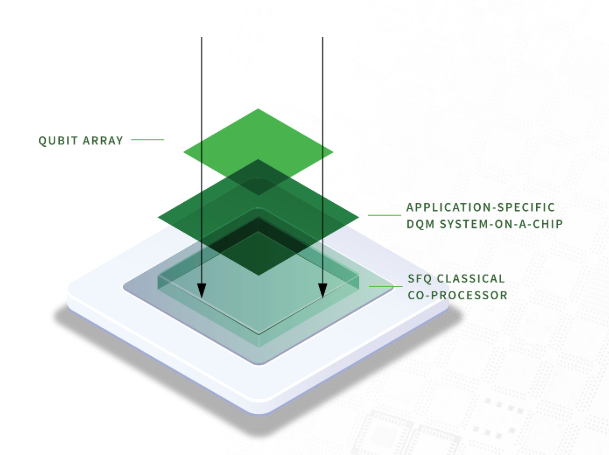INSUBCONTINENT EXCLUSIVE:
Seeqc, a startup that is part of a relatively new class of quantum computing companies that is looking at how to best use classical
computing to manage quantum processors, today announced that it has raised $5 million from M Ventures, the strategic corporate venture
capital arm of Merck, the German pharmaceutical giant
Merck will be a strategic partner for Seeqc and will help it to develop its R-D efforts to develop useful application-specific quantum
computers.
With this, New York state-based Seeqc has now raised a total of $11 million, including a recent $6.8 million seed round that
included BlueYard Capital, Cambium, NewLab and the Partnership Fund for New York City.
Since developing new pharmaceuticals is an obvious
use case for quantum computing, it makes sense that large pharmaceutical companies are trying to get ahead of their competitors by making
strategic investments in companies like Seeqc.
The company is a spin-out of Hypres, a company that specializes in building
superconductor-integrated circuits
Hypres itself had raised about $100 million in total and notes that much of the work it did on building its solutions are now part of
Seeqc.
As a company spokesperson told me, the idea behind Seeqc is to bring today room-sized quantum computers down to a more manageable
It doing so by combining its (and Hypres&) expertise in building superconductors with a hybrid approach to combine analog and digital
This includes digital qubit control and readout, together with the company own proprietary chip technology that integrates classical and
quantum circuits into a hybrid system (and by default, quantum computers are hybrid systems that need a classical computer to control
them).
The company argues that co-locating the classical compute with the quantum processor is critical to achieving the best performance
And since it owns and operates its own fab to build these chips, Seeqc also believes that it is one of the few companies that has the right
infrastructure and expertise in place to design, test and build these superconductors.
The ‘brute force& or labware approach to quantum
computing contemplates building machines with thousands or even millions of qubits requiring multiple analog cables and, in some cases,
complex CMOS readout/control for each qubit, but that doesn''t scale effectively as the industry strives to deliver business-applicable
solutions,& said John Levy, co-chief executive officer at Seeqc
&With Seeqc hybrid approach, we utilize the power of quantum computers in a digital system-on-a-chip environment, offering greater control,
cost reduction and with a massive reduction in energy, introducing a more viable path to commercial scalability.
The company believes that
its approach can cut the cost of today large-scale quantum computers to 1/400th
All of this, of course, is still a while out and, for now, the company will use the new funding to build a small-scale version of its
system.
We&re excited to be working with a world-leading team and fab on one of the most pressing issues in modern quantum computing,& says
Owen Lozman, vice president at M Ventures
&We recognize that scaling the current generations of superconducting quantum computers beyond the noisy intermediate-scale quantum era will
require fundamental changes in qubit control and wiring
Building on deep expertise in single flux quantum technologies, Seeqc has a clear, and importantly cost-efficient, pathway towards
addressing existing challenges and disrupting analog, microwave-controlled architectures.
Seeqc is, of course, not the only startup working
on more efficient quantum control schemes
Quantum Machines, for example, also recently raised quite a bit of venture capital for its hardware/software quantum orchestration platform
that also includes a custom processor, though that company overall approach is quite different from Seeqc&s.

